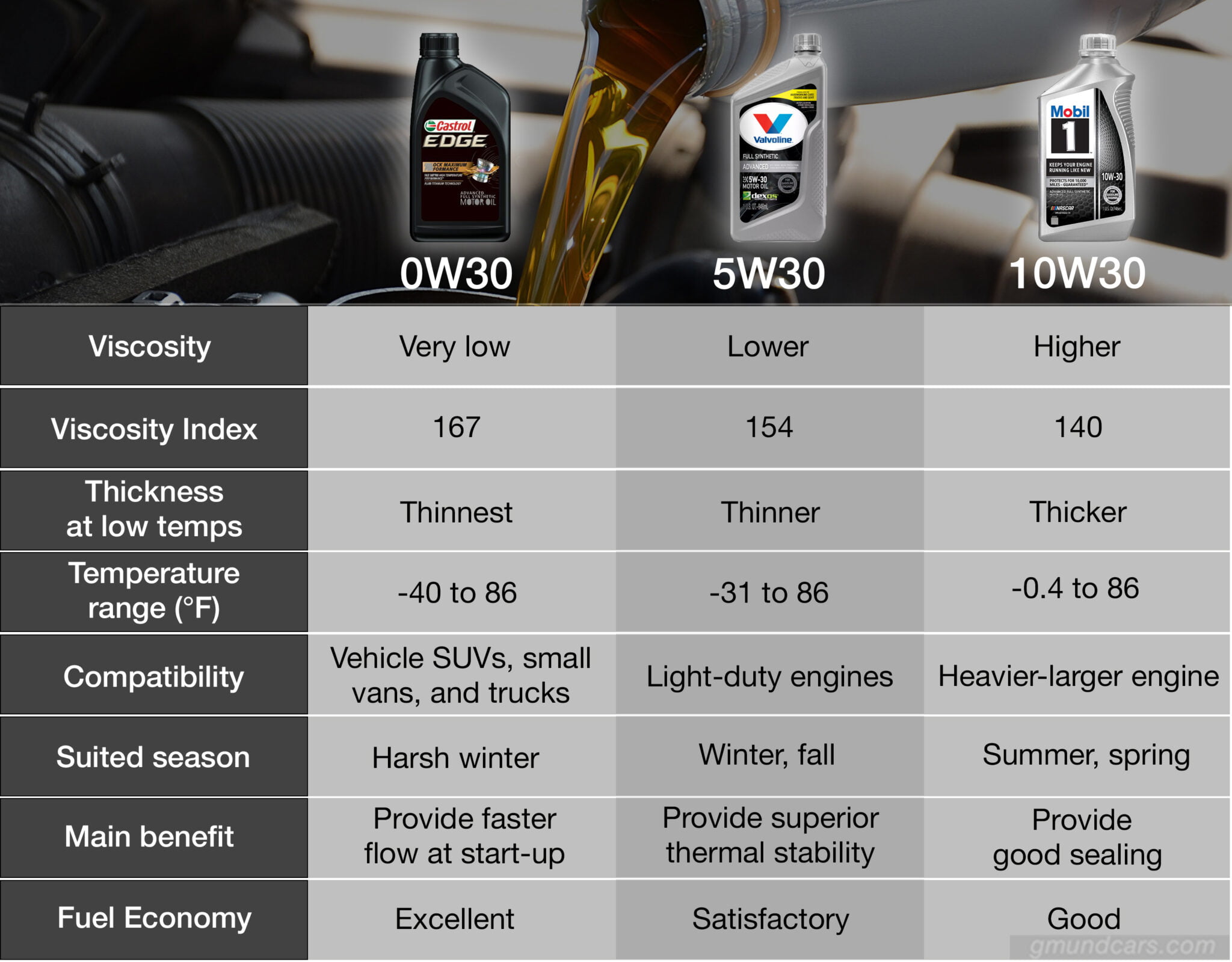The whirring of a car engine is a familiar sound, a symphony of gears and pistons working in perfect harmony. Like any complex machine, a car needs proper lubrication to function smoothly, and that’s where motor oil comes in. But with so many different types and grades, choosing the right oil can feel daunting. You’ve probably seen the terms “15W-40” and “5W-40” on oil bottles, but what do they mean?

Image: gmundcars.com
This article delves into the world of motor oil, exploring the nuances between 15W-40 and 5W-40, helping you understand which oil your car needs for optimal performance and longevity. Whether you’re a seasoned car enthusiast or just starting to learn about automotive maintenance, this guide will equip you with the knowledge to make informed decisions about your car’s oil.
Motor Oil Explained: Viscosity and the W-Factor
The heart of understanding oil grades lies in viscosity—a measure of a fluid’s resistance to flow. It’s analogous to the thickness of honey versus water. At low temperatures, thick oils struggle to flow easily, leading to slower oil circulation and increased wear on engine components. Conversely, thin oils can provide insufficient lubrication at high temperatures, potentially causing engine damage.
The “W” in oil grades stands for “Winter.” The number before the “W” indicates the oil’s viscosity at cold temperatures. For example, 5W oil is thinner than 15W oil at lower temperatures, making it better suited for cold weather starts. This allows for faster lubrication and easier engine operation.
Decoding 15W-40 and 5W-40
The “40” in both oil grades refers to the oil’s viscosity at higher temperatures. This number indicates the oil’s thickness when the engine is hot. Both 15W-40 and 5W-40 have the same high-temperature viscosity, meaning they provide comparable lubrication at operating temperatures.
15W-40: A Traditional Choice
15W-40 oil, commonly referred to as “conventional” or “mineral oil,” is a thicker oil that has been a mainstay in the automotive industry. Its thicker consistency provides excellent lubrication for older engines and high-performance vehicles, offering extra protection at high temperatures and under heavy loads. However, 15W-40’s thicker nature can lead to slower cold-start performance and slightly reduced fuel efficiency compared to thinner oils.

Image: www.liqui-moly.hu
5W-40: Blending Performance and Efficiency
5W-40 oil is a “synthetic blend,” meaning it combines synthetic oil’s premium qualities with mineral oil’s affordability. This blend provides superior cold-start performance and better fuel efficiency than 15W-40 oil. It also offers excellent protection against engine wear and tear, suitable for modern engines with tighter tolerances and demanding driving conditions. While 5W-40 boasts several advantages, it often comes at a higher price point compared to 15W-40.
Choosing the Right Oil for Your Car: Factors to Consider
Navigating the world of motor oils can be tricky, but understanding the factors below can help you select the right oil for your vehicle:
- Vehicle Year and Engine Type: Check your owner’s manual for the recommended oil grade and viscosity. Modern engines may require thinner oils like 5W-40, while older engines may perform better with thicker oils like 15W-40.
- Climate: In colder climates, thinner oils like 5W-40 offer faster cold-start lubrication. In warmer climates, thicker oils like 15W-40 provide sufficient protection at high temperatures.
- Driving Style: If you frequently engage in heavy-duty driving or towing, a thicker oil like 15W-40 may provide better protection. For everyday driving, a thinner oil like 5W-40 can improve fuel efficiency.
- Oil Change Intervals: Thinner oils often have shorter oil change intervals compared to thicker oils. This is because they break down faster due to their lower viscosity.
Expert Tips for Choosing and Maintaining Your Engine Oil
Here are a few tips from automotive experts to ensure the longevity of your engine and optimal performance:
- Check your oil level regularly. Use a dipstick to determine how much oil is in your engine. Ensure you top it off with the correct type of oil as recommended in your owner’s manual.
- Adhere to recommended oil change intervals. Regularly changing your oil is essential for maintaining engine health. Over time, oil degrades and loses its effectiveness, leading to excessive wear and tear.
- Consider using a synthetic blend oil for added performance and protection. Synthetic blends offer a balance between performance and price, making them a popular choice for many drivers.
- Avoid using the wrong type of oil. Mixing different oil types can lead to problems and affect your engine’s performance.
FAQ: 15W-40 vs 5W-40
Q: Which oil (15W-40 or 5W-40) is better?
The answer depends on your specific needs. For modern engines and everyday driving, 5W-40 often provides better fuel efficiency and cold-start performance. For older engines and demanding driving conditions, 15W-40 may offer superior protection. Consult your owner’s manual for specific recommendations.
Q: Is 15W-40 oil suitable for modern cars?
It depends on the vehicle. Some modern vehicles may specify 15W-40 in their owner’s manual, while others may require thinner oils. Refer to your owner’s manual for the correct oil grade for your specific vehicle.
Q: Can I use 5W-40 oil in an older car?
In most cases, 5W-40 can be safely used in older cars. However, always refer to your owner’s manual for the recommended oil grade. Using a thinner oil than specified may lead to issues in older engines with wear and tear.
15w 40 Vs 5w 40
Conclusion: Choosing the Right Oil for Your Engine’s Health
Selecting the correct oil grade is critical for your engine’s health. By understanding the nuances of 15W-40 and 5W-40, you can make informed decisions that ensure optimal performance and longevity. Remember, always consult your owner’s manual for specific recommendations. Are you interested in learning more about engine oil and maintenance? Let us know your questions in the comments below!






